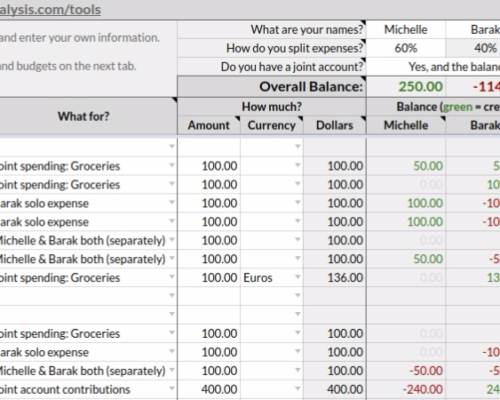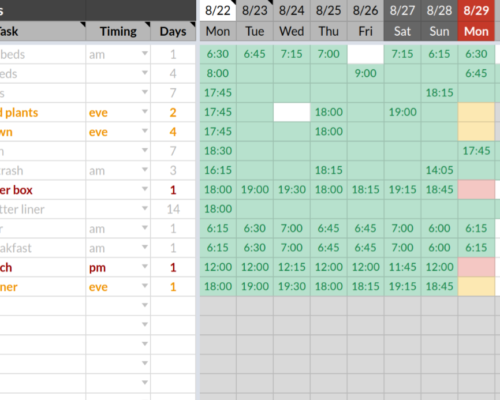
Food Fantasy
Meals should be savored. Prepared thoughtfully. From whole seasonal ingredients procured personally, locally. Enjoyed around large tables with family, friends, and good wine. Savored, not optimized: neither for a single pot nor a handful of ingredients nor so many minutes over the stove.
You don’t need me or Michael Pollan to show you the truth in this. But you surely also see the hopeless optimism of it. How many meals truly match this ideal? If it’s a couple a week, you’re doing better than most. Be honest: how do the other 19+ feedings per week go down?
Food Reality
Sure, not every meal choice is perfect. But it’s worse than haphazard imperfection. When we’re hungry, we’re at our most suggestible, and there are others who’d like to plan our menus on our behalf. Choose whatever flavor of autonomy you think you’re exercising: did you seek out the convenience of takeout? The purported “value” of fast food? The enlightened healthfulness of a specific energy bar/salad bar/juice bar? Don’t fool yourself. If we don’t bother to optimize our meals, someone else will. For what will they optimize? Profiting off our unwillingness to analyze.
Food Optimality
Let’s fact it. At least 90% of our meals are inevitably mindless implementations of routine. But this sad fact has a silver lining: we need not reinvent the wheel three times a day. Every meal we take the time to optimize will serve us for a lifetime of servings. Engineer once, eat up the returns at least l,0001 times over: that’s quite a payback.
The possible optimizations are manifold. Reduce cost, minimize prep time, maximize nutritional content—or ideally, do all three at once. Compare products, compare recipes, or set them both against each other. Take a rigorous look at those value meals and 5-minute 5-ingredient 1-pot recipes, and shop-order-plan-prep-dine without wavering or waste forevermore.
If that’s a lot of exposition for a calculation template, it’s in recognition of the incredible unlikeliness of what I propose. Compare before you consume? Calculate before you cook? Nobody does this.
I have come to, because the payoff is ridiculous. And because I’ve found that making consumption choices that are truly my own to be an empowering exercise in real personal freedom.
And maybe you will. If my exposition is convincing. Or if I give you a tool that makes it much easier to implement.
The Nutritional Cost Comparator

The Nutritional Cost Comparator takes care of the oft-complex math of cost and nutrition comparisons. For off-the-shelf products, plug in a few numbers from the label. For recipes, do the same for main ingredients and specify how they’re combined. The results might surprise you—as they did me, when I learned that making my own energy bars could save up to $60 per batch, or that the cheapest supermarket alternative, despite being nutritional garbage, cost twice as much.
The calculator can assist with a number of different optimizations:
- Compare products against each other. How do various products—up to nine of them—compare on nutritional content and unit cost?
- Compare off-the-shelf products to homemade. How much will I save per unit, and per batch? Enough to be worth the time and effort?
- Fine-tune recipes. Adjust batch size, portion size, and ingredients to achieve a specific macronutrient profile, caloric quantity, or unit cost.
If you can’t be bothered, keep following Kitchen Minimal for culinary optimizations, many of which will include nutritional cost analyses using this tool. But if you see the immense and empowering worth of a little work, the math is on me. Mi herramienta es tu herramienta.2
Sample Analysis
The hyperlinks above go to a largely blank template to make your data entry easier. But I originally built it to compare off-the-shelf energy bars with homemade prototypes, and that Energy Bar Analysis is perhaps the best place to see all of these possibilities in action. Note the unit costs (if DIY were on the shelf, you’d buy it); the batch savings (it adds up fast); and the macronutrient profiles (the most economical products are consistently carb-heavy).


